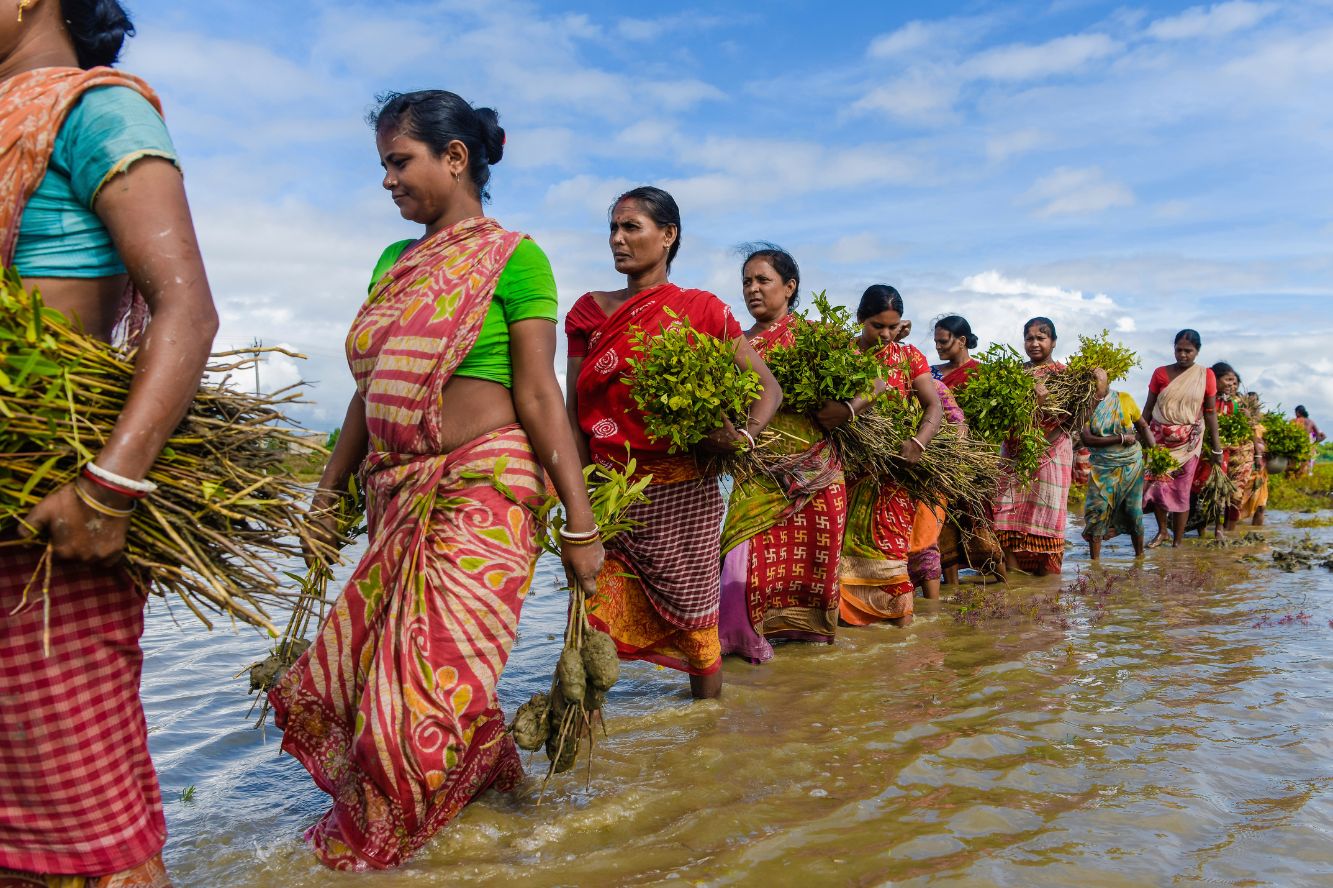Blue Forests and Ocean Equity Roundtable
17 April 2024 Bergen, Norway

IHRB, The Norwegian Blue Forests Network and Rafto Foundation are hosting a roundtable discussion on the human rights dimensions of blue forest loss and restoration, drawing on examples from Nigeria to India and Indonesia.
The event will bring together duty bearers from shipping, ports, energy, tourism, aquaculture and industrial fishing, as well as blue finance and regulators at the table with affected rights-holders, to better understand their respective roles and duties in conservation and restoration of blue forests, and remediation where harm has already been done.
This roundtable is part of a global series of such dialogues over the coming years to build knowledge, momentum, and pathways to improvement in ensuring sustainable blue forests are at the heart of rights-based ocean equity.
The event is invite only and will be held under Chatham House Rule.
Speakers:
"It is so important to ensure healthy and sustainable ecosystems specifically when looking at the livelihood of communities dependant on the ocean economy. Many marginalised communities depend on this and face further marginalisation because of industrialisation and profit over people! Hoping that principles on non discrimination and human rights at the centre of the discourse around the ocean economy."
– Beena Pallical, National Dalit Campaign on Human Rights
"The ocean and our coastal territories are crucibles of life and must not be seen as sacrificial zones to feed the thirst for extractivism. They support life and hold the basic resources humans and other species need to thrive. Our energy needs, food needs and wellbeing are found in them.
It is time to invest in the repair of our broken relationships with each other, other species in our eco systems."
– Nnimmo Bassey, HOMEF Nigeria
"We are the ocean people. We would like to have a destruction free marine environment and the community led marine spatial planning for the protection of the ocean, with the assurance from Governments and private sectors to reduce inequality and ensure benefits for all."
– Johnson Jament, BlueGreen Ocean Resource Centre
"In coastal areas of developing countries with high ecosystemic wealth, it is increasingly urgent that companies and other economic actors focus on establishing a genuine and meaningful relationship with local authorities, communities and those populations that have disproportionately borne the costs of the human rights impacts generated by industries such as tourism, ports and civil works infrastructure.
This relationship should seek to compensate for past impacts and to restore and recover ecosystems in the long term both with a human rights lens and a public-private collaborative approach."
– José Gomez, Executive Director, CREER
"Companies and blue finance must face up to their responsibilities around coastal habitat destruction and restoration in areas negatively impacted by their operations and investments. Without active engagement by the private sector in sustainable restoration, coastal communities in many places around the world will continue to see their livelihoods, their food security, their climate resilience severely threatened."
– Frances House, Senior Advisor, Special Programes, IHRB
Agenda
0900 Arrivals and coffee on Ole Bull Electric Vessel
0920 Set sail and welcomes:
-
Jostein Hole Kobbelvedt, Rafto – why this dialogue during One Ocean Week?
Moderators: Tulika Bansal (Ocean Platform for Human Rights) and Frances House (IHRB)
0930: Framing
-
Peter Haugan, Norwegian Blue Forests Network / Institute for Marine Research – the critical role of global blue forest protection and restoration in achieving a sustainable and equitable ocean economy.
-
Nnimmo Bassey, HOMEF Nigeria: mangrove destruction through a human rights lens
1000: Community engagement in coastal habitat restoration
-
Beena Pallical, National Dalit Campaign on Human Rights – impact of industrial fishing in India on habitat destruction and artisanal fisher livelihoods? What needs to change?
-
Johnson Jament, BlueGreen Ocean Resource Centre, Kerala - learning from indigenous coastal communities. How can companies achieve meaningful dialogue with rights-holders? Is there scope for partnership?
-
José Gomez, CREER Colombia - port expansion in Cartagena. A pathway to shared benefits with local communities?
Q+A, discussion
1100: Market responses
-
Steven Lutz, GRID-Arendal – does the blue carbon market take human rights into consideration? How can blue finance be a stronger driver for ocean community equity? What’s missing?
Q+A, roundtable discussion
1145: Calls to Action
-
Nnimmo Bassey
-
Peter Haugan
1200: Disembark
For more information, please contact Frances House


